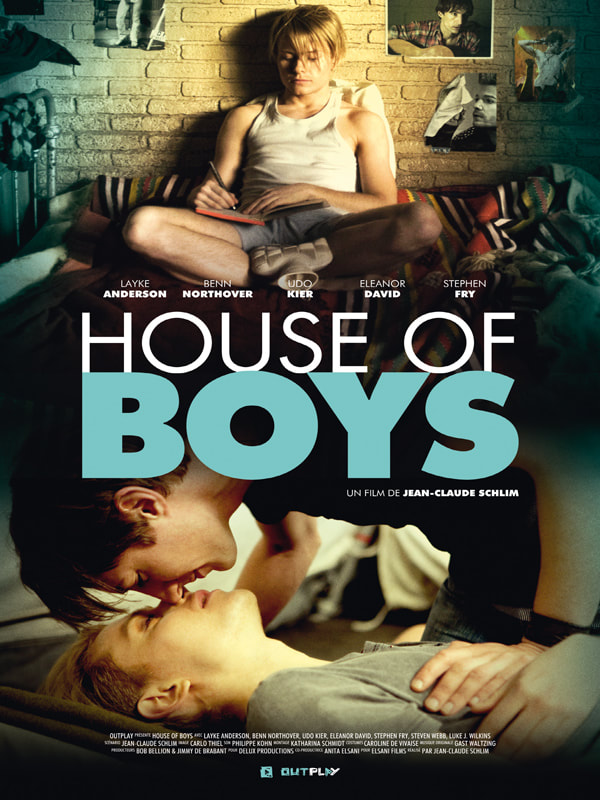|
I have lost count the amount of AIDS related programming I have watched in my lifetime and last year’s It’s A Sin, shared with a younger generation those days when sex was hedonistic until it wasn’t. Sadly much of the HIV/AIDS storylines missed a generation or two who grew up in a time where AIDS was not a death sentence and equality under the law became a reality. In that respects the show did much to restart the conversation that had gone quiet.
But let’s put aside It’s A Sin and go back to 2009 when House of Boys was released. An English language German-Luxembourgian production starring Layke Anderson, Ben Northover, Udo Kier & Stephen Fry. It also has a fantastic soundtrack that captures the early 80’s beautifully. Set in the early 80’s, the film is about Frank (Anderson) who runs away from his privileged Luxembourg upbringing to Amsterdam where he goes to work as a waiter then dancer in a club called House of Boys run by Madame (Udo Kier). Here he falls for the seemingly straight Jake (Northover) . Frank’s best friend at the House of Boys is Angelo, who is dancing to save up for his transition surgery. They are looked over by a house mother who treats them as her own and is devoted to Madame for saving her life. After a tragedy (I won’t spoil it here) Jake and Frank get close and seem to be on the road to a relationship outside the House of Boys when Jake gets sick. It’s the early 80’s and it’s no surprise to the viewer what dark cloud is hanging over Amsterdam. Stephen Fry plays Dr. Marsh an English doctor working in the Netherlands who becomes aware that the disease killing off boys in the US and UK has arrived in Amsterdam. What starts out as a crazy little party film of runaways and hustling now morphs into a film of community, love and compassion. Jake and Frank’s friends rally to support Jake as he slips away. It is these scenes where we see the effect of the disease on his mental state including involuntary masturbation which was handled in a way that wasn’t vulgar. Flashbacks to his unhappy childhood are juxtaposed with current scenes of Frank holding him and his friends touching him. People often forget how powerful the image of an AIDS patient being touched or held was. House of Boys doesn’t go down the road of familial rejection after diagnosis and disappearing from the lives of friends that other programmes or films does. In this film, the friends are at the centre and they care for one another. The final scenes in the film and the fulfilment of a dying wish don’t just fill you with emotion, they fill you with compassion. You almost forgot how wasted Frank becomes and see only his light, and that of those around him. There are many stories in the HIV/ AIDS epidemic and this is one to definitely watch. House of Boys may not have received wide acclaim but it left its mark on subsequent depictions of those early days in the productions that would follow.
0 Comments
|
AuthorJohn Lugo-Trebble considers this more of a space to engage personal reflections and memories with connections to music and film. Archives
November 2023
Categories |
Proudly powered by Weebly

 RSS Feed
RSS Feed